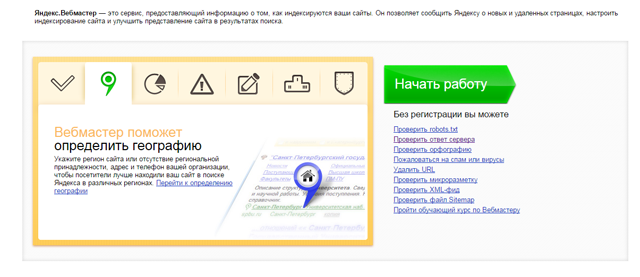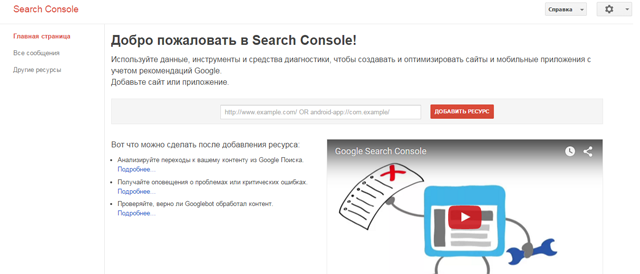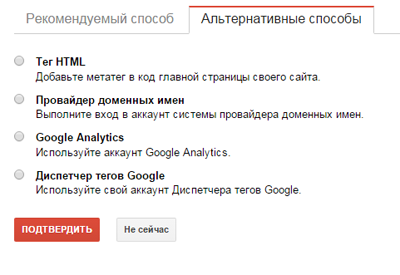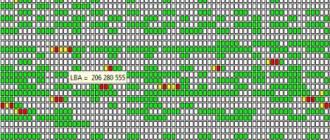I think you remember our articles about one of the recent algorithms - Palekh. If anything, you can refresh knowledge and.
For the lazy, in brief, I will tell you that Palekh allows Yandex to understand the essence of the query without binding to specific keywords. But it works only in the link request-header. If you explain completely on your fingers, Palekh only knows how to understand the meaning of the headings (and not the whole page) and compare it with the essence of the query.
August 22, 2017 Yandex at the presentation in the Moscow Planetarium announced a new search algorithm "Queens". The algorithm is named in honor of the Soviet scientist and the founder of Soviet cosmonautics, Sergei Pavlovich Korolev. And it is a logical continuation of Palekh.
Yandex, for its part, did everything possible for us (search users) to realize the significance of innovations and understand that this algorithm is special and fundamental, from the category of great steps for humanity.
First, Yandex created a separate site - https://yandex.ru/korolev/, which was not done for any previous algorithm.
Secondly, I arranged a real show from the announcement - I launched large-scale advertising campaigns (I do not know how you were - Yandex caught up with me even in my daughter's instagram, which I did not notice before), during the broadcast, the presenters got in touch with cosmonauts; presented the team working on the algorithm; awarded rocket-medals.
To whom it is interesting - here is the recording of the broadcast, the essence there for a couple of minutes, the rest is a pompous show:
Let's understand what in this algorithm is so special.
Usually the title of the page reflects the essence of the document, so Palekh is able to understand the essence of the title, but this is not enough. The content on the page is also important. And Yandex figured out how to do it.
Yandex Space Search
But before we start to explain smart things in plain language, we will test the issue. Compare what happened and what happened with the introduction of Korolev in fact. We test on "long-tailed queries", tk. in all its glory, the algorithms of Palekh and Korolev are revealed exactly there.
Remember, in the article about Palekh, we drove various requests and analyzed the results of issuance? On their example and see what has changed. We are watching in incognito mode so that personalization does not interfere.
Take the query "film in which the doctor gave the girl a candy of laughter":
The delivery on this request is clearly better. In this case, there is not a word about the girl or laughing in the description:
Miracle - you will say, no - Korolyov.
The following query: "Who is the highest mammal":
Again, the issue became better.
Another query is "to buy a tool for making holes in small concrete":
Extradition has also become better. If under Palekh there were many holes for the skin among the variants, then under Korolev the delivery became much clearer.
Well, the last request, which is no longer comparable with the Yandex version of Palekh, but with Google's current version of RankBrain - "what is the name of the book that endangered species of animals and plants"
Yandex at the expense of the islands answer looks more representative, but Google in the first snippet gives the right answer. And if before Palekh obviously lost to Rank Brain'u, then Yandex in the version of Korolev if he lags, then not much.
We understand what has changed technically.
Algorithm Korolev simple words
Algorithm Palekh was able to compare the meaning of the request and the title of the page. Korolev also knows how to analyze the whole page, not just the query.
For example, Korolev easily finds the answer to the question "picture where the clock hangs on the tree," although there is no direct use of these words in the description on the page:
Due to what is this happening?
Korolev, unlike Palekh, has learned to do two fundamentally important things.
The first - began to determine the essence of the page at the time of indexing. Those. already at the time of robot crawling Yandex understands the meaning of the content of the indexed page and stores this data in itself. Palekh defined the meaning of the header at the time of the request. If the header was still possible, then with a full page is problematic - it will take more time, and the user will not wait for the search, google immediately google.
The second - takes into account the meaning of other requests to which the page is relevant. I will explain this.
Any page can be relevant to several queries. For example, the picture "Memory permanence" can be searched for by various queries: "a picture where the clock hangs on a tree", "Salvador Dali's famous painting", "a picture about a soft watch" and so on. And if we know the best answer to the query "picture about a soft clock", then it is logical to assume that these same answers will be the best for the rest of these queries.
What does this mean for website owners and the SEO industry as a whole?
Yes, in general, nothing. The era of semantic SEO moves with leaps and bounds.
All the latest algorithms that Palekh, that Baden-Baden, that Korolev say only one thing - do sites for people. Only technical optimization is now not enough - today, search engines around the world are doing everything to ensure that the first places are really the best sites in their subject matter.
Forget about the indicators of nausea and spam on the page, about TK with a specific entry of keywords and optimization for robots.
With traditional text optimization, switch to LSI-copywriting. To better understand the meaning of the pages Yandex will help semantic markup. And if you do not know what to do - contact us - we will spin your site correctly.
Unfortunately, often having such a website flies in a pretty penny, and instead of developing its website and business, they prefer to invest in buying links, cheating behavioral and other illegal, but less expensive ways.
"What?! Redesign of the site 89 000 rubles ?! Yes, I'll buy links to Sapa for this money "- just yesterday I heard from one of our clients. It's a shame. But who was right - time will tell.
Space to you TOP search engine!
Yandex launched a new version of the search. It is based on the search algorithm "Korolev" - using a neural network, it compares the meaning of the query and the web page. Thanks to this, the search understands what the user really needs, and answers the complicated questions even more accurately. AT new version search is used more widely search statistics and takes into account user ratings Yandeks.Toloki.The first step to search in terms of meaning Yandex did last year, when he implemented the algorithm "Palekh" - he real-time compares the meaning of the request and the title of the web page. "Korolev" uses a neural network that analyzes not only the title, but the entire page as a whole. This is a complex computational task, so Yandex determines the essence of the page in advance, at the stage of indexing. Thanks to this, the number of pages that search compares in meaning with the query, has grown from 150 documents to 200 thousand. Another important feature of "Korolev" is that, in addition to matching the meaning of the query and the page, it also takes into account the meaning of other queries on which people go to it.
For a neural network to appreciate the semantic proximity of a query and a document, it needs a huge number of examples. Such examples give an impersonal search statistics: to which sites people go on requests and how long they spend there. So, if a person went to the page and looked at it for a while, most likely, it is close in meaning to the request. Using the search statistics of millions of people, Yandex learns to understand the semantic connections. For example, he will understand that in the query [the picture where the sky is twisting] it is a picture of Van Gogh, and in the request [lazy cat from Mongolia] - about the manul.
"Search is a very complex system. Thousands of engineers are working to ensure that she understands the person and helped solve his problems. In the "Queen" we combined the machine intellect and the efforts of millions of people. Our users improve the search with us, asking questions and helping to train our algorithms, "says Andrey Styskin, the head of Yandex Search.
To learn the search engine, you also need to evaluate the quality of answers. And the more complex the system, the more estimates are required. Previously, Yandex assessed the quality of search with the help of its experts - assessors. Now estimates are also taken into account by Yandex.Tolok users. It is a service where anyone can perform assignments and receive remuneration for them. Now in Yandex.Tolok registered more than a million users who have already exposed more than two billion estimates.
The neural network analyzes not only the title, but the entire page in its entirety, while the search engine determines its essence even at the stage of indexing
MOSCOW, August 22. / TASS /. "Yandex" launched a new version of the search, which is based on the comparison of the meaning of the request and the web page, the company said. The new version works on the Korolyov algorithm, which uses a neural network to determine what the user wants. The neural network analyzes not only the title, but the entire page in its entirety, while "Yandex" determines the essence of the page in advance, at the stage of indexing.
Another feature of the "Queen" is that it takes into account also the meaning of other requests, according to which people pass to it. "For a neural network to appreciate the semantic proximity of a query and a document, it needs a huge number of examples. Such examples give an impersonal search statistics: to which sites people go on requests and how long they spend there. So, if a person went to a page and looked at it for a while, most likely, it is close by the meaning of the request. Using the search statistics of millions of people, "Yandex" learns to understand the semantic connections. For example, he will understand that in the query "the picture where the sky is twisting", it is a picture of Van Gogh, and in the request "lazy cat from Mongolia" - about manul, "the company said in a press release.
Last year, Yandex already launched a system that operates on the basis of neural networks - Palekh. The former system indexed 150 pages, in the "Queen" the number of pages that search compares in meaning with the query, has grown to 200 thousand.
The new algorithm was named in honor of the founder of domestic cosmonautics Sergei Korolev.
"And today we are launching a new ranking algorithm" Korolev. " Why did we choose such a name? Sergei Pavlovich Korolev carried out the dream of mankind about flying into space. For us in "Yandex" today's launch is just as important an important technological breakthrough to the dream of search, which understands users, "said Alexander Safronov, head of the Yandex Linguistic Relevance Service, at the presentation of the new version of the search.
Hall Assistance
To learn the search engine, assessments of the quality of answers are needed. Previously, "Yandex" evaluated the quality of search with the help of its appraisers. The new search will take into account the estimates that users of the Yandex.Tolok service, a distributed network of appraisers, will be exhibiting. The service allows anyone to carry out tasks and receive rewards for them, at the moment it has registered more than a million users. Any interested person can register on the platform.
Yandex is the largest search engine in Russia. The company's share in the Russian search market (including search on mobile devices) in the second quarter of 2017 averaged 54.3%, in the first quarter of this year - 54.7% (according to the analytical service "Yandeks.Radar"). According to Liveinternet.ru, in June of this year, the search share of Yandex was 51.3%.
In this article, we'll talk about how to quickly add your site to Yandex and Google, so that search engines come to your site, index it and the pages of the site appear in the search results.
3 ways to add a new site to Yandex
Consider the 3 most simple ways.
Report a new site
To go to this page, you need to log in with your login and password from Yandex or register new account. Enter the address of the site in the field "URL", then captcha and click the "Add" button.
Adding a site to Yandex.Webmaster

To access the service, you need to register or use your Yandex login and password. Webmaster allows you to track the indexing of the site, track errors, add a site map and much more. I recommend registering your site in this service.
To add a new site, click Start Work, then Add Site, enter the site address in a special field and click the Add button.
On the next page, you need to verify ownership of the domain. The following methods are suggested for this:
- Upload the HTML file to the root of the site
- Place the meta tag in the site header
- Upload TXT file to the root of the site (temporarily not working)
- Through the WHOIS domain
- Through DNS domain
I recommend using the check through the download of the HTML file. Download the file and upload it through the file manager of the hosting or FTP to the root of the site. After that press the "Check" button. After a few seconds of checking, you will receive a message "The site has been successfully queued for indexing".
To access the page, you need to register with Google or enter your login and password. Enter the address of the site in the field "URL"; we confirm that we are not a robot and press the "Send request" button. If everything is done correctly, we see the message "Your request has been received and will be processed soon".
That's enough to tell Google about your new site. But there are two other ways that you can use to add a site to Google.

Google Search Console (formerly Google Webmasters) is a webmaster service that allows you to track site indexing, errors, add a Sitemap and much more.
On the main page of the service enter the address of the site and click the button "Add resource". On the next page, you need to verify ownership of the domain. The recommended method is to upload the HTML file to the server.

Alternative ways:
- HTML tag
- Provider of domain names
- Google Analytics
- Google Tag Manager








